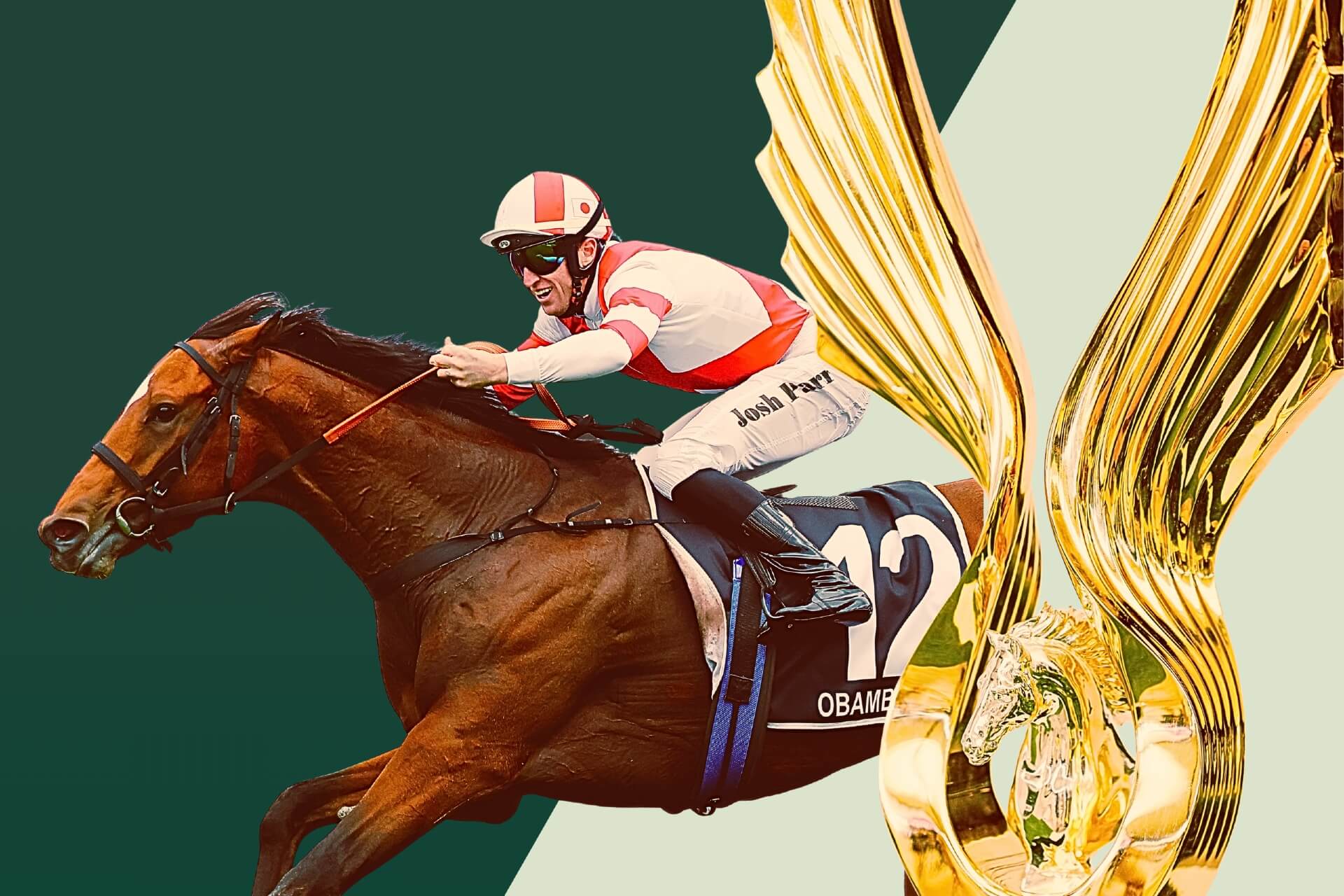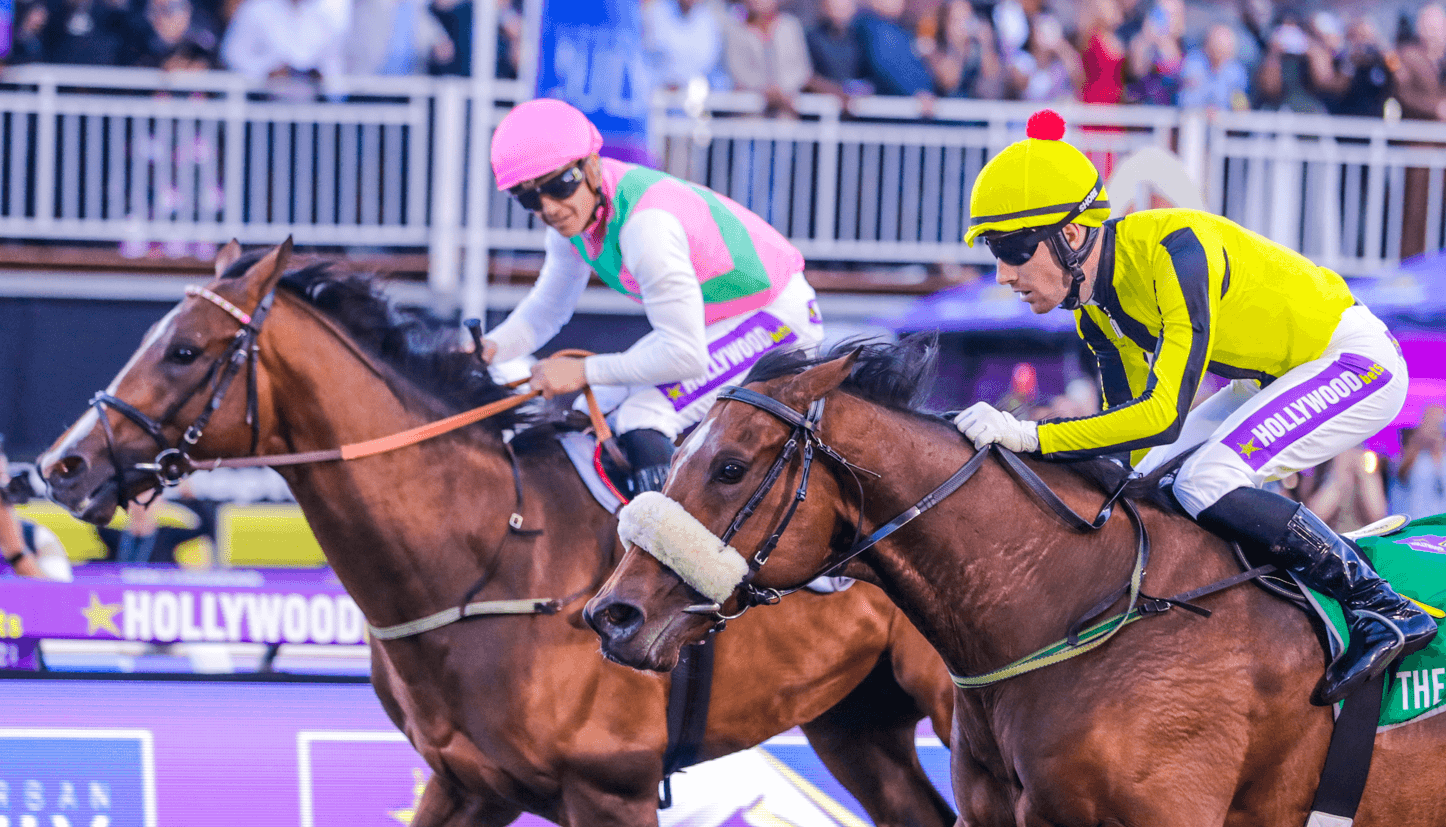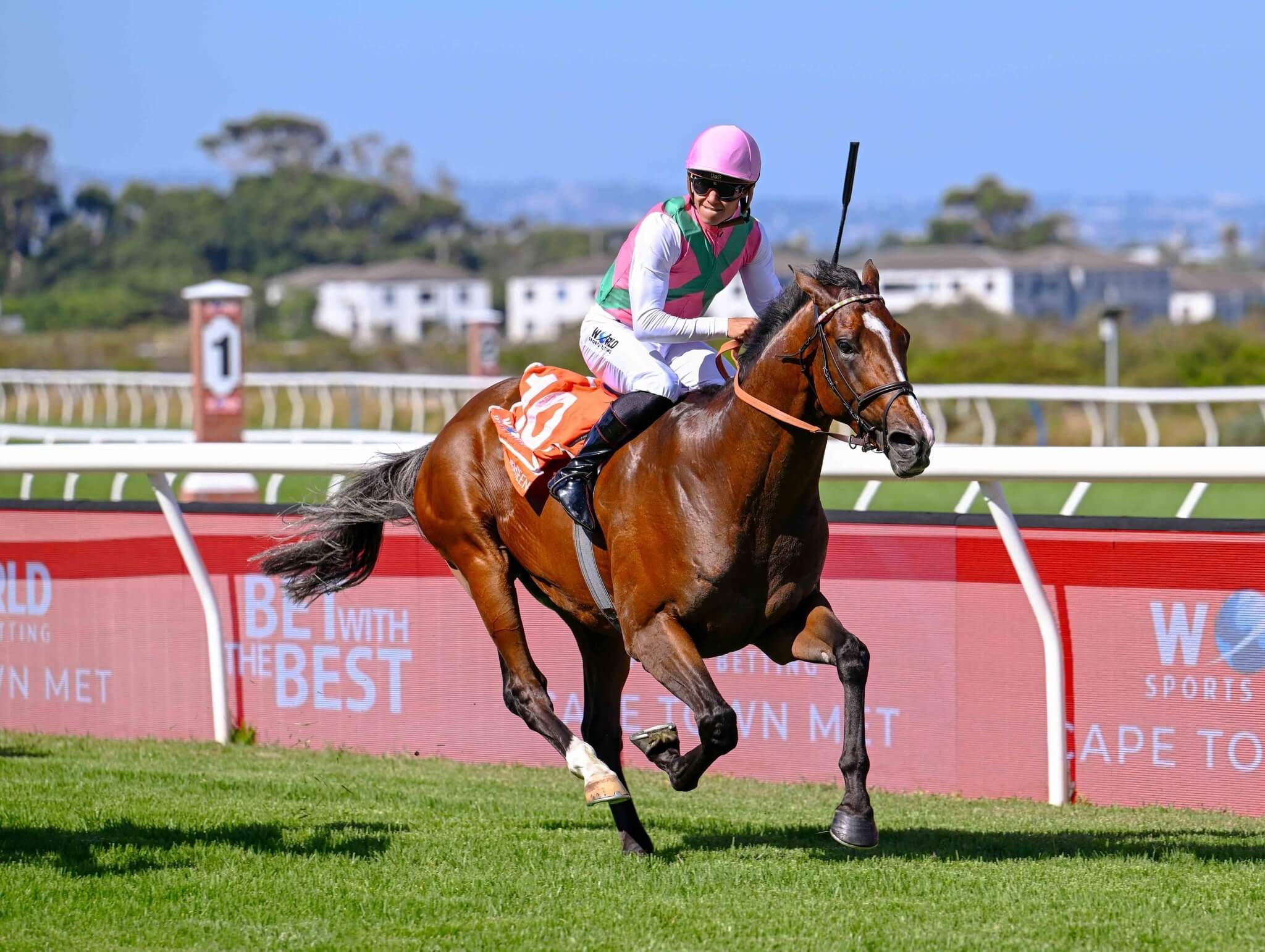Top Five: Memorable Champion Stakes
As Economics prepares to put his burgeoning reputation on the line in England this weekend, Chief Journalist David Morgan takes a look at five memorable Champion Stakes from the past.
Top Five: Memorable Champion Stakes
As Economics prepares to put his burgeoning reputation on the line in England this weekend, Chief Journalist David Morgan takes a look at five memorable Champion Stakes from the past.
18 October, 2024ASCOT will host the G1 Champion Stakes on Saturday as part of British Champions Day, as it has done since 2011, but this list of memorable editions of the 10-furlong race takes into consideration the span of races going all the way back to 1877 when it was first run at its original and proper home, Newmarket.
The list is entirely subjective. With getting on for 150 years to go back through, it is difficult to select only a handful, and a good number more than Idol Horse can give space to might certainly be worthy of mention; also, it is not about which is the best winner, and nothing to do with horse ratings, rather it’s the top five races, in my own opinion, that grabbed public attention and left a memory that cuts through at least some of the usual ‘recency bias’ most of us fall into.
5. Alborada (1999)
To round off the 20th century, the grey mare Alborada won her second Champion Stakes in as many years for her popular team of trainer Sir Mark Prescott, veteran jockey George Duffield, then 52, and owner-breeder Kirsten Rausing.

Much was expected of Alborada in 1999 after her 1998 Champion Stakes win, but setbacks in her training meant that she did not return to action until the Nassau Stakes at Goodwood in July, a race she had won the previous year. She flopped, finishing fifth at odds of 15/8.
The filly did not appear again any time soon and her fans feared her best days were behind her. Further injury setbacks meant Alborada did not race until the Champion Stakes at Newmarket that October, and Prescott later admitted the team had talked about retiring her just one month prior to her glorious finale.
But on that golden autumnal afternoon, Alborada was back to her brilliant best to complete the double, driving to the lead at the furlong pole for a length and a quarter win over the 7/2 favourite Shiva. The Newmarket crowd gave the filly a deserving send-off as she retired to the Lanwades Stud paddocks.
4. Springfield (1877)
The first is never forgotten and the brilliant Springfield, bred by Queen Victoria’s Hampton Court Stud, was the victor when Newmarket staged the initial running of the Champion Stakes in the autumn of 1877. What a success the new contest proved to be, with the season’s biggest earner, the star three-year-old Silvio, going up against Springfield, the top older horse at the time.
Springfield was a remarkable athlete that won 17 of 19 starts and was unbeaten through his three and four-year-old seasons: at three he won two races at Royal Ascot and took the first ever running of the six-furlong July Cup; at four he won the July Cup again, among five wins that term.
Silvio had won the Derby, Ascot Derby (King Edward VII Stakes) and the St Leger before heading to Newmarket, but he more than met his match against Springfield. The latter had no problem with the longer distance, despite his exploits at sprint distances, and beat Silvio and seven others so handsomely as to be deemed ‘invincible’ in the press and have his name etched in history.
3. Bosra Sham (1996)
Sir Henry Cecil was a masterful trainer who, like Prescott with Alborada, had to use all his years of expertise to get Bosra Sham to Newmarket at her peak for the Champion Stakes. Cecil had nursed the brilliant chestnut to a 1,000 Guineas win despite her suffering issues with shallow, fragile feet, but those problems recurred soon after her Classic triumph, preventing her from racing again until the Queen Elizabeth II Stakes at Ascot a few months later. There, she was a brave second behind the 2,000 Guineas hero Mark Of Esteem.
That colt had been trained by Cecil as a juvenile until the previous autumn when his owner Sheikh Mohammed removed him from Cecil’s stable in a much-publicised disagreement. The Sheikh had only recently established Godolphin, and Mark Of Esteem was sent to race in the now-famous blue silks under trainer Saeed bin Suroor’s watch.
That made for a tasty clash in the Champion Stakes. Bosra Sham was expected to improve for her Ascot run, with word that her feet were holding up, but she was up against Godolphin’s champion 10-furlong horse Halling, a two-time winner of the Eclipse Stakes and Juddmonte International Stakes. Halling was even-money favourite and Bosra Sham was 9/4 second choice.
But Bosra Sham delivered a memorable victory for Cecil. The racing public’s darling travelled strongly for Pat Eddery, took the lead a furlong out and quickened to win by two and a half lengths from the chasing Halling, and returned to a heroine’s reception.
2. Frankel (2012)
It was the dawn of a new era, whether we liked it or not, when Ascot staged the newly-concocted British Champions Day in 2011. That afternoon saw the world’s best middle-distance gelding at the time, Cirrus Des Aigles, win the Champion Stakes, while the mighty Frankel smashed his rivals in the Queen Elizabeth II Stakes.
One year on, the two were to meet, with Frankel’s immense legend about to be sealed. The Cecil-trained colt had reached his career finale unbeaten, off the back of a sensational win in the Juddmonte International Stakes, and was being touted by many professionals and fans alike as “The greatest of them all,” to quote Jim McGrath’s race commentary. The Khalid Abdullah homebred did not disappoint, courageously and powerfully defeating Cirrus Des Aigles by a couple of lengths on ground that was unsuitably soft.

The packed grandstands gave him a rapturous, flag-waving ovation that lasted several minutes: even Queen Elizabeth gave him a wave from the royal box as he cantered in front of the stands post-victory.
But there was more to the day than that. Cecil was battling terminal cancer and was there to oversee the colt’s big send-off, looking drawn. The great trainer, who had resurrected his career after a dramatic dip in the first seven years of the century, passed away eight months later. Frankel’s Champion Stakes is one that will live long in the sport’s folklore.
1. Lorenzaccio (1970)
You have to go back 54 years for the top pick in this selection, but that itself speaks to just how memorable this race was. Lorenzaccio was the winner, but it was the horse he beat, Nijinsky, and the shock it caused, that has given the memory such longevity.
A bit about Lorenzaccio first, though. He was a talented galloper for his owner Charles St George and trainer Noel Murless, winning the July Stakes at two and becoming the first British-trained horse to win the Prix Jean Prat as a three-year-old. But all told he was a nearly horse against the very best, winning good races here and there but generally being in and around the placings in the very top races through four campaigns, as when third behind Park Top in the 1969 Champion Stakes.
It was that way right through Lorenzaccio’s five-year-old season, up until his second-to-last start in the 1970 Champion Stakes. There, at Newmarket, he faced the outstanding three-year-old colt Nijinsky, a horse so good he remains the last horse to have won the English Triple Crown.
Nijinsky was a stunning athlete, a champion at two and three, and the Vincent O’Brien-trained bay had captured the public’s imagination with his Triple Crown win – the first for 35 years – under ‘the housewives favourite’ Lester Piggott. But he had been beaten in the Prix de l’Arc de Triomphe, edged out by Sassafras in the final strides to finish a close second. Two weeks on, this was his chance to end his career on a high and he started at odds of 4/11.
It wasn’t to be. In one of the biggest shocks of the century, Nijinsky, neck lathered in sweat, couldn’t ignite his usual spark. Old Lorenzaccio took the lead under Geoff Lewis a-furlong-and-a-half out and held the favourite by about a length to ensure his name would be talked about for decades to come.
Honourable Mentions
Brigadier Gerard’s first Champion Stakes victory in 1971 is memorable for being the great horse’s first win at beyond a mile, and the fact that it was achieved on soft ground that did not suit, cemented his status as an all-time great in the making.
Prince Aly Khan’s grey mare Petite Etoile rounded off her brilliant unbeaten three-year-old season with victory in the 1959 Champion Stakes having won the free Handicap, 1,000 Guineas, Oaks, Sussex Stakes and Yorkshire Oaks that year. Her Champion Stakes win under Piggott sealed her position as a public favourite and set her up for the following two seasons in which she established herself as one of the all-time great mares.
Robert The Devil was a popular hero with 19th century racegoers even if his name is not familiar nowadays. His brilliance was enough to have him ranked 10th in an 1886 Sporting Times poll of the best horses of that century. Robert The Devil’s 1880 Champion Stakes win continued his ongoing rivalry with the Derby winner Bend Or and he thrilled the crowd that day with a memorable front-running win that saw him 10 lengths superior at the finish.
Jim Bolger caused a stir in 2008 when the previous year’s champion juvenile New Approach turned up and won the Derby after connections had initially intimated the colt would not take that route. The sometimes fractious chestnut was then sidelined with an injury, returned with a defeat in the rearranged Juddmonte International Stakes at Newmarket, scraped a win in the Irish Champion Stakes, and then scoffed at his doubters with an electric win in the Champion Stakes, streaking six lengths clear of the two-time Champion Stakes winner Twice Over.
It would be wrong to ignore the memory of Tristan who won the race three times from 1882 to 1884. Incredibly, he dead-heated in two of those: the first, in 1882, was a memorable draw with the 1,000 Guineas and Oaks winner Thebais; in 1884 he showed off his famous temper pre-race before going on to dead-heat with the filly Lucerne. He also completed hat-tricks in the Hardwicke Stakes and the Grand Prix de Deauville in those same years.
For anyone associated with Hong Kong racing, Triptych’s win in 1986 and her follow-up in 1987 are never to be forgotten, for the fact that she was ridden by Hong Kong’s own living legend Tony Cruz.




